Parliament was still in recess whilst the Conservative Party Conference takes place. We have the news from the Conference, some movement on Essay Mills and several new reports. And we have a big primer on student finance, ahead of the budget.
Conservative Party Conference
After the first day of the Conservative Party conference Wonkhe speculate what the personalities and lack of fiscal room for manoeuvre mean for HE in the forthcoming spending review (looming on the later October horizon):
- At last night’s Policy Exchange fringe meeting, new Secretary of State Nadhim Zahawi represented a breath of fresh air insofar as he was keen to stress that decisions would be “evidence-led”, that he understood that universities delivered vocational skills and that a consultation is still coming over aspects of Augar. But the spending envelope isn’t his call – and the big question for this spending review remains “What does Rishi Sunak want?” If he wants to balance the books and demonstrate fiscal prudence – and all the signs point to a reining in after the immense scale of public spending during Covid-19 – then universities could be in for a rough ride when stacked up against other pressing priorities. The potential for a fee cut, in particular, will be keeping university finance directors up at night. Without a complete rethink of the funding system, there are few good available options to reduce the overall cost of the system. Thanks to inflation, even maintaining the status quo of the frozen fee level means diminishing funding to higher education over time.
- It now seems likely that a new financial settlement, aimed at reducing the Treasury’s exposure to higher education, will see changes to graduate repayment terms, perhaps even retrospectively for existing students. Last week, former universities minister David Willetts, in a pamphlet for the Higher Education Policy Institute, suggested that this option is more politically defensible at a time of constrained public spending than reducing funding to universities via tuition fee cuts. Minimum entry standards could also do its bit to cap the supply of students over time, thus saving Her Majesty’s Government a little more money, though with few outside the fringes of the Conservative Party genuinely believing that fewer people benefiting from a higher education is a desirable outcome, and ever-growing numbers of school and college leavers hoping to go – it’s a policy that if implemented could end up coming back to bite the Conservatives in the future.
- So with so many moving fiscal and political parts around the spending review and Budget, there’s every chance that late deals could lead to unexpected outcomes and changes to what was previously thought to be a direction of travel. As ever in politics, decisions are not made until they are announced in public, and with this prime minister in particular, huge changes of direction can be made on a whim
New Education Secretary Nadhim Zahawi gave a keynote address at the Conservative Party Conference. It focussed heavily on schools (including emphasis on English and maths). Nadhim also gave HE a nod in crediting Oxford University for the vaccine development. The Government’s intention towards T levels remains.
- DfE is investing in maths hubs, while at post-16 there is funding for a further 2m courses. One day soon I want T levels to be as famous as A levels.
- Zahawi promised a schools White Paper in the new year to focus on illiteracy and innumeracy. I will work tirelessly…to unleash the brilliance of young people in this country.
- Nadhim added that as Vaccine minister he used evidence to deliver a world-leading vaccines programme and that DfE will deliver the same for education.
Chancellor Rishi Sunak promised new scholarships in artificial intelligence:
2,000 elite AI scholarships for disadvantaged young people within the Government’s focus on innovative technology which he stated was a sign of the party’s ambition for the future.
Prime Minister Boris Johnson made a particularly colourful rambling speech to entertain the Conference attendees. It was light on HE content. Within the context of levelling up he questioned why York (2 universities) had so many graduates yet Doncaster (a FE/HE college) didn’t. Perhaps not the best example his aides could have chosen.
- There was also familiar messaging about the alternative routes than university: our universities are world beating, I owe everything to my tutors and they are one of the great glories of our economy but we all know that some of the most brilliant and imaginative and creative people in Britain and some of the best paid people in Britain did not go to university and to level up you need to give people the options the skills that are right for them and to make the most of those skills and knowledge and to level up you need urgently to plug all the other the gaps in our infrastructure that are still holding people and communities back
- On foreign investment: It was not the government that made the wonder drug it wasn’t brewed in the alembics of the department of health. It was, of course it was Oxford University, but it was the private sector that made it possible behind those vaccines are companies and shareholders and, yes, bankers.
Lots of focussed discussion took place during the Conservative Party Conference fringe events. Here are some summaries of the content prepared by Dods with bold emphasis added so you can pick out the most relevant HE points.
Contract Cheating
On Tuesday the DfE stated it will introduce a ban on ‘essay mills’ via the Skills and Post-16 Education Bill which is currently making its way through Parliament. The Government intends to make it a criminal offence to provide, arrange or advertise cheating services for financial gain to students taking a qualification at any institution in England providing post-16 education including universities.
You’ll recall from our regular coverage on contract cheating that Lord Storey has campaigned to this end for a long period, including introducing two Private Member’s Bills (PMB) which the Government was not opposed to but neither succeeded. In contrast to Lord Storey’s PMB the DfE’s intention is to apply the legislation to all post-16 providers including colleges and sixth forms.
Previously the Government urged the QAA (Quality Assurance Agency for Higher Education), UUK and the NUS to collaborate and produce institutional guidance on combatting the threat from essay mills and compiled guidance for students to make them better aware of the consequences to send the clear message that these services are not legitimate.
Minister for Skills Alex Burghart said: Essay mills are completely unethical and profit by undermining the hard work most students do. We are taking steps to ban these cheating services. We have also announced a new measure to make sure all young people receive broader careers guidance so everyone can get the advice that’s right for them. [Perhaps meaning to pursue T levels and an alternative route than university.]
Gender Differences in subject choice
The Institute for Fiscal Studies (IFS) paper Gender differences in subject choice leads to gender pay gap immediately after graduation highlights how course choice exacerbates the gender pay gap. IFS notes:
- In 2019 – before the pandemic disrupted data collection – women were paid 16% less per hour than men on average. The gap in average annual earnings was even larger, at 37%, since women are much more likely to work part-time.
- The financial return to getting a degree – how much more a graduate earns compared to an otherwise similar non-graduate – varies enormously across subjects. Previous IFS research estimates that studying economics at university boosts women’s pay by 75% by age 30; this is more than ten times the return to studying creative arts (7.2%). However, women make up nearly two-thirds of creative arts graduates but less than a third of economics graduates.
- In general, women are overrepresented in degree subjects with low financial returns. There are some exceptions – for example, medicine and law both have average or slightly above average shares of female students and very high returns.
- Differences in degree subject choices explain most of the gender pay gap soon after graduation.
- Of the 5% gap in annual earnings at age 25, 2.9 percentage points (55%) can be accounted for by university subjects, with A-Level subject choices making up a further 0.2 percentage points (5%).
- Subject choice continues to contribute between 3 and 5 percentage points to the gender pay gap over graduates’ early careers.
- But over this period, other factors lead to a widening of the gender pay gap, so that by age 30, subject choice explains only a fifth of the total gender pay gap.
- Other factors that come into play could include motherhood, gender differences in attitudes towards risk, recognition for group work, hours worked, the propensity to bargain over wages and ask for promotions, and discrimination.
- We should be concerned if information on the returns to different subjects isn’t easily available to young people, and if the large differences in subject choice (arts for girls, economics for boys) are driven as much by gender stereotypes as by true preferences.
- When it comes to a subject like economics, which delivers the very highest financial return for female (and male) graduates, there is an additional concern that many students cannot access the subject at all because it is not offered in their school.
- More needs to be done to educate and inform young people about subject choices at A level and university, particularly in a system like the UK where subject choices narrow at an early stage and where decisions taken early can have long-lasting effects.
Research
Research and innovation review: BEIS published the terms of reference for the Review of the Research, Development and Innovation Organisational Landscape. The independent review (announced on 22 July) will be led by Sir Paul Nurse with the final report expected during Spring 2022. The goals of the Review are to:
- explore the features and characteristics in the existing ecosystem of RDI-performing organisations across the UK, learning from the best in the world and drawing on transformative examples
- identify whether improvements to the organisational research landscape are required to deliver the government’s objective for the UK to be a science superpower at the forefront of critical and emerging fields of science and technology, and drive economic growth and societal benefit
- futureproof the UK landscape of organisations undertaking all forms of RDI, from pioneering, visionary blue-skies research to practical support for innovators to commercialise or implement their ideas, and ensure an agile and sustainable system that can respond to future priorities and developments
The Review will consider the full and varied policy and funding context within which RDI-performing organisations are set up and operate. The Review is focused on the landscape of organisations that deliver research rather than on mechanisms for funding research and will:
- analyse how the various organisations that contribute to the ecosystem of RDI-performing organisations across different parts of the UK – including universities, institutes and laboratories, across UK government and the devolved administrations, public, private and non-profit sectors – compare to each other and that of other countries with strengths in RDI
- learning from international examples, consider the role that different mixes of organisations can play in delivering economic and societal impact from RDI, and the mechanisms and business models that will best enable the UK to capitalise on emerging and new fields of science and invention
- consider how best to secure an organisational landscape now and in the future that delivers high-quality RDI outputs, and which is sustainable and cost-effective
- consider options to support the UK’s strengths and what targeted interventions in the public sector might enhance the quality and diverse mix of RDI-performing organisations through our policy framework and the policies of the devolved administrations
Research Budget distribution: MillionPlus, the Association for Modern Universities, published a policy briefing calling for the pledged increase of the R&D budget to £22bn to be shared more equitably around the country in the name of the Government’s levelling up goal. The briefing emphasises the importance of re-balancing the way research in the UK is funded so that modern universities, many of which sit in marginalised areas of the country, and those hit hardest by the pandemic, can do more to support a world-class system of research and innovation, for the benefit of their regions and the country. Recommendations:
- Scale up the Higher Education Innovation Fund, so that knowledge exchange makes up a greater proportion of overall grant funding from Research England.
- Increase the number of Knowledge Transfer Partnerships funded across the UK.
- Expand the Strength in Places Fund.
- Ensure that the Shared Prosperity Fund is devolved, based on long-term funding cycles, and accessible to universities and local businesses.
MillionPlus also published Innovate and generate: modern universities supporting local businesses aiming to highlight the partnerships that modern universities with local roots and an industry-facing outlook have with businesses in their regions. The document emphasises their calls for Government to prioritise and dedicate specific R&D funding streams for such relationships and the positive impact it can have on levelling up the UK.
Quick news
- Incentivising business innovation through taxation – CBI Economics consider the arguments for R&D tax credits
- Imperial College London announced their new Institute for Infection. The aim of the Institute is to address some of the biggest unanswered questions in the field of infectious disease, such as how is climate change impacting the spread of diseases transmitted by flies and mosquitoes, how can gene-editing technologies help to reduce the spread of disease (such as Dengue and Zika), and how can animal vaccination programmes help to curb diseases which also affect humans.
Access & Participation
Student Hardship funding: Hitting the news last week (from the July OfS Board papers) was that £1.66 million of the additional £70 million hardship funding provided by the Government was unspent and recovered by the OfS.
Wonkhe say: Despite overwhelming evidence that the hardships caused by Covid-19 were near universal, the government was wedded to the idea of individual student problems rather than the systemic issues felt across the whole cohort. There were conditions attached to allocation: providers had to distribute funds to students that expressed a specific need, and all of the money needed to be handed out by 31 July…The complexity of existing hardship fund arrangements at providers (many had to recruit extra staff to administer the process) and the tight deadline (three months for the final tranche) made it difficult to get the money to where it was needed.
Mental Health
The Mental Health Foundation released new research combining evidence with expert opinion and public views. You can read about it here but in short it recommends (in order of popularity):
- Be aware of using drugs to cope with difficult feelings
- Build money skills and seek financial support if you need it
- Get more from your sleep
- Develop awareness of your feelings and emotions
- Have something to look forward to
- Get closer to nature
- Speak to someone you trust for support
- Stay curious and open to new experiences
Almost as popular (chosen by at least 45% of the public panel) were:
- Have a healthy diet
- Help others, contribute to something bigger
- Engage in physical activity
- Practice gratitude and cultivate hope
- Strengthen social connections
Our research shows that it’s the fundamentals of life that protect our mental health: our finances, our relationships and our experiences
Student Finance
The DfE updated the information on who is eligible for undergraduate, postgraduate and further education financial support from Student Finance England. The update includes new policy notes on the rights to home fee status and student support for people covered by the Withdrawal Agreements who make a valid late application to the EU Settlement Scheme, and rights for joining family members under the EU Settlement Scheme:
Possible changes to fees and funding have been in the news a lot over the autumn in the build up to the Comprehensive Spending Review on 27th October when, yet again, we are promised the final response from the government to the Augar report and an outcome for the Review of Post-18 Education and Funding, which Augar was meant to inform.
Some changes have already happened:
- Some OfS funding for “non-strategic” subjects was cut this year – but it was a small cut to a tiny amount of funding. Anxiety was heightened because the former Education Secretary kept saying in the HoC and to newspapers that he was “slashing” funding, but he was exaggerating. A lot. The OfS got very defensive about it. You can read what they did here. Anyway, it set the tone for what may be more to come. The OfS were told to stop calling the main funding a “teaching” grant and call it a “strategic priorities” grant. You get the point. Let’s hope the updated Ministerial team choose their language more carefully, to avoid future misunderstanding. Words matter.
- The OfS decided to distribute a chunk of their capital funding via a competitive bidding arrangement, in a big departure from previous allocation methods. You can read what they did here. This may well also set the tone for the future, and is consistent with what is expected to happen with some streams of research funding going forwards.
The main pre-announcement that we are expecting to see followed through with a consultation at the end of the month is on minimum entry requirements. This is a technique to reduce or at least limit the growing cost of the student loan portfolio by applying a floor to the academic entry requirements that applicants must meet in order to qualify for a student loan. Students could still go to university, if they pay their own way, of course, or are able to borrow the funding another way. Widely criticised as a cap on aspiration and a retrograde step for social mobility, because of the risk that many of the potential students who will be excluded from university will be those whose prior attainment does not reflect their true potential, and because many of those will be in that position as a result of some form of disadvantage. We have commented on this extensively before and note that Augar suggested that it be deployed as a last resort if universities did not clean up their act on quality. We note that we are not convinced that there is necessarily a direct link between “quality” and low entry tariffs and that it feels a bit early in the cycle for last resorts. But there you are. The definition of quality debate is a much bigger one that is ongoing now as the OfS looks at its licence conditions.
And there could be many other things announced. Most of the press coverage recently has been about a potential cut to the repayment threshold (increased by Theresa May in a shock move after the 2017 election that cost the government a lot of money). This idea has not been well received by students or recent graduates. We note that retrospective changes to the terms of loans (other than interest rates) are not usually allowed (for banks, for example), and that there is a general feeling that students and recent graduates, who have not had a great couple of years, will be asked to fill a government financial hole “because they don’t vote conservative anyway”. Given that Theresa May put the floor up precisely because she was worried about the so-called youthquake in the 2017 election, the link seems to be a fair one. The Tories in 2017 didn’t have the majority that they have now. And the financial hole is very big.
BU staff can read our May 2021 summary of what else we might have to look forward to here.
Given that there is likely to be a flurry of press stories, better or less-well informed opinion, social media excitement etc, around any changes, we wanted to give you a bit of context. Apologies to regular readers or those with students in the family who know all this, all too well, but here we go. And apologies to readers in the devolved nations, we are focussing on England here. Also we are focussing on undergraduates.
Undergraduate tuition fees
These are capped. The cap hasn’t moved for a long time. There is very little prospect of it moving for a long time to come.
They are not tuition fees. The OfS in their most recent publication on the subject (well worth a read) calls them “course fees”. They aren’t really that either.
When they were introduced they replaced a big chunk of government funding for universities and, apart from those universities with huge numbers of international or post-graduate students, or huge proportions of research or donor income, these fees are the main source of income for most universities. They therefore pay for staff, services, loan interest, depreciation, building maintenance, IT, OfS registration fees, and so on – the lot. They famously cross subsidise research which is generally funded at less than cost.
If a student has a tuition fee loan (most do as otherwise they need to pay up front), the fee is paid by the Student Loan Company directly to the university in three chunks across the year. The biggest chunk (50%) is paid in the summer AFTER the student has completed most of the year. This helps avoid a situation where the university gets money for students who don’t stick around. But it also explains why cash flow across the year is a talking point in universities, and why a temporary change took place last year when the second instalment was paid early because of concerns about financial sustainability of universities in the pandemic.
Maintenance loans
These loans are made available to UK students to help with their living and other costs while at university. They replaced the grant system. Before loans were introduced, if students didn’t qualify for a grant they needed parental support or another source of income. That is still the case. There is a minimum amount for a maintenance loan, but above that loan eligibility is means tested according to the income of the student’s family. So the vast majority of students in the UK still need parental support for their maintenance costs, and if that isn’t available, they will need to work or borrow money instead.
You can see more in the SLC document for 2021/22 students.
Maintenance costs are a huge issue for many students. Unlike the tuition fee, which is paid by the SLC to the university, this is cash the students need to find and spend. There has been a lot of coverage of the high cost of accommodation in many places (often more than the maximum loan) and of the particular unfairness of the situation over the last two years when students were told by the government not to return to accommodation they had paid for, with money neither they nor their families could afford. That’s a long and separate story.
Student loans
Although they are called loans, student finance arrangements are very different from the usual loan arrangements we are all used to, and this is where it gets complicated and political. So apologies again. This very useful paper from the House of Commons library (September 2021) has lots of context on this.
As noted above, student loans are made up of two items, tuition fees and maintenance loans (you can also use a student loan for postgraduate support but that’s a different story).
Interest starts to accrue on the loan balance straight away, while the student is at university. Interest rates are very high – compared to some other rates available in the market. But the interest rate charged varies over time and according to the income of the graduate (not their family, this time).
From an SLC document describing 2021/11 arrangements:
- While studying and until 6th April after you finish: RPI pls 3%
- After that:
- Income £27,295 or less – RPI only
- Income above £27,295 to £49,130 – Interest applied on a scale from RPI to RPI + 3%
- Income above £49,130 – RPI + 3%
Martin Lewis explained the latest rate for Money Saving Expert in October 2021:
- On 1 October 2021, for students from England and Wales who started university in or after 2012, the headline student loan interest rate decreased from 5.6% to 4.1% in line with the current RPI, and the temporary ‘Prevailing Market Rate’
- Despite the decrease, this rate is still higher than most mortgages, and far higher than for students from prior cohorts. And, the headline rate is expected to increase again, to 4.5%, on the 1 January 2022.
Repayment arrangements
This is where student loans really start to look different from “normal” loans. The student finance arrangements we have are not really loans at all. Really what we have here is a graduate tax. But shhh – it isn’t called that. Because people don’t like taxes, so it could never be called a tax.
The notional amount of the student finance grows throughout out the time that a student is studying, and interest is added during that time and afterwards. So far so like a loan.
But – graduates only start to repay it from the April after their course ends, and only when their income reaches a threshold. Most students are on what is called “plan 2” and we are going to use their data:
- You’ll only repay when your income is over £524 a week, £2,274 a month or £27,295 a year (before tax and other deductions).
- G. Your annual income is £28,800 and you are paid a regular monthly wage. This means that each month your income is £2,400 (£28,800 divided by 12). This is over the Plan 2 monthly threshold of £2,274. Your income is £126 over the threshold (£2,400 minus £2,274). You will pay back £11 (9% of £126) each month.
In other words, repayments are means tested, and only the income over the threshold is used to calculate the repayments. Clearly in a lot of cases that means that the amount you are repaying is not enough to cover the interest that is also still accruing. So the overall amount just keeps on going up, just as it would with a “normal” loan if you didn’t pay enough off each month.
The other big difference with a “normal” loan, though, is what happens at the end. The whole thing, interest and all, is written off after 30 years from the April after your course finished. That is a big and growing cost to the government. This very useful paper from the House of Commons library (September 2021) gives some context on what this means.
- The RAB charge is the difference between the amount lent to a cohort of students, and the value of their repayments as graduates. For 2020/21 it is predicted by the Government to be 53%.
- … repayments for the 2020/21 cohort will range from just over £1,000 on average in decile 1 to almost £63,000 for decile 10. The average lifetime repayment across all borrowers is just over £19,000.
- “Overall, 22% of borrowers are forecast to repay their loans in full, this rate varies from 0‑2% in the bottom four deciles to 87% in decile 10”
So when students say that they are “paying” tuition fees – they aren’t paying it yet, and in fact most will never pay it all back. Only the highest earners, mostly men, will pay it all back. The paper has charts showing the difference for women and men.
We should also note that the loan is not treated like a normal loan when you are taking out a normal loan, either. Your potential repayments are taken into account when considering your ability to pay, but it is not treated the same way for your credit score as a typical loan would be. So it is treated more like a mobile phone contract than a car loan.
So it’s really a graduate tax which stops after 30 years. Or an income dependent contingent loan (which is written off after 30 years).
Potential changes
The government would clearly like to recover more of this money. It must be noted that it was never intended that it would all be repaid, however. When the system was set up it was deliberately intended that only the students with higher income would pay it all back. This was meant to be progressive.
That’s why there has been little sympathy for arguments to reduce the interest rate. On the face of it, students seem to be “paying” a high interest rate. But they aren’t in fact paying it at all, and most of them will never pay it. It accrues at a high rate, and then most of it is written off. So increasing the interest rate may be an option instead:
- The impact of a 1 ppt increase in the interest rate would mean that the average repayment per borrower would increase by £1,500 or 5.2%.
- However, this increase is not spread evenly across borrowers. Only those with higher earnings pay back more. The number of borrowers who repay their loan in full would drop from 22% under the current system to 18%.
For a long time the government was able to keep this cost “off the balance sheet” until the auditing rules were changed and the whole cost was added to the national debt. That started to change perceptions about it.
And of course, since the scheme was introduced, the number of students going to university has increased, we are just emerging from a demographic dip. So the potential cost just keeps on going up.
We have already mentioned changes to the repayment threshold may be under discussion. That has all sorts of consequences – but they are not very progressive (another HoC library paper):
- Middle earners would see the largest absolute increase of around £4,000 on average, while the highest earners would see their repayments fall slightly.
- While the increase for lower earners is below average in absolute terms, it represents the largest percentage increase at around 30%. The number of borrowers who repay their loan in full would increase from 22% under the current system to 25%.
There has also been talk of extending the payment term from 30 to 35 years (Augar said 40) and increasing the rate of repayment (different from the interest rate). Another helpful briefing paper here.
- both measures result in increased lifetime repayments especially from middle to higher earners.
What next
We’ll see. But we think there will be some tinkering with repayment arrangements – despite the fact that these would be retrospective changes to the agreed terms. And there may be other changes that will reduce the number of people eligible to take these loans out in the future – as well as the minimum qualifications requirement.
Or there may a cut in the tuition fee. The latter would reduce the loan book and the notional interest – and give the government more direct control of university funding though the use of “strategic priorities” to top up (some of) the difference – consistent with the current direction as noted at the start of this section.
There could be caps on the numbers of students studying particular subjects, or at particular institutions (if they don’t meet quality thresholds, for example). Note in this context that the government is increasingly linking definitions of quality to “outcomes”, by which they mean highly skilled employment and relative earnings. And that is a whole different subject which we have discussed before, and will again.
Mature students
The Lifelong Education Commission, supported by ResPublica and chaired by former universities minister Chris Skidmore MP, published The Pathway to Lifelong Education: Reforming the UK’s Skills System. It is the first of 8 reports the Commission has planned on on lifelong learning and the UK’s skills system. The Commission recommends how the barriers to adult learning can be removed; what future investment is needed to support this; and what change is needed to ensure the maximum flexibility that will benefit learners and deliver on the promise of a whole system change for lifelong education.
Recommendations:
- All citizens will be able to access the loan entitlement regardless of prior qualifications, or how they choose to study, including: modular or full qualifications; part-time or full-time; via face-to-face or distance learning.
- The Lifetime Loan Entitlement should allow funding to be applied to different modules of learning to enable (i) existing qualifications to be unbundled into smaller units (e.g. 30 to 60 credits) and (ii) microcredentials to be stacked as part of larger units.
- A more ambitious reform would be to create a unified credit-based funding system that does not distinguish between different modes of study and provides equal access and support for learners regardless of how they learn or where learning takes place.
- Alongside the loan entitlement, Government should consider means-tested maintenance grants to provide support with living costs and encourage adult learners to access higher technical qualifications, particularly those for whom debt will be viewed as a disincentive and a barrier to reskill.
- Government should: (i) Build on the existing credit framework and regional consortia approach to design a networked system that can guarantee the autonomy of higher education providers while enabling the transfer and accumulation of credit. (ii) Consider reform of the wider regulatory framework to simplify the jurisdiction between various bodies (HEIs, the Institute, QAA, Ofsted, OfS, etc.) regarding higher technical qualifications, which has the scope for duplication and inconsistency. (iii) Consider Scotland’s ‘articulation agreements’, which provide a good model for clearer routes between FE and HE.
- There is, especially in England, a need to bring together and better integrate the various parts of the careers system: (i) A single integrated careers service is required for all citizens at all stages of their working life. This will need to provide high level, specialist advice, available in every locality. (ii) A system should be established to regulate and support the continued professional development of careers advisers. As a minimum, all careers advisers should be registered with the Careers Development Institute and have relevant qualifications at Level 4 or above.
- Retain part-time student premium funding and make part-time learning an explicit priority for the teaching grant to incentivise lifelong education and training.
- Remove the remaining restrictions on ELQs so that available funding (including loans for fees and maintenance) can support those who want to study for a second higher education qualification in a different discipline.
- Government should explore options, including a ‘Flexible Skills Levy’ and ‘Tax Credits’ to incentivise employer investment in skills training.
- In addition to employers and educational institutions, Mayoral Combined Authorities in England with devolved responsibilities for adult skills should play a central role in the coproduction of local skills plan. Moreover, MCAs should be given genuine power over issues of essentially regional concern. Almost all of the functions currently exercised by the Department for Education could be devolved.
Former universities minister Chris Skidmore said: If there is one policy to deliver ‘levelling up’, it is adult learning and skills. Acquiring new skills is something we all do throughout our lives. Yet the formal process for acquiring them is incredibly constrained. There are too few opportunities to return to learning for those who have left it. And those willing to retrain or re-skill can barely see the wood for the trees; the pathways are so complex.
The government is embracing adult learning at just the right time. The Lifelong Learning Entitlement, combined with the prospect of modular and course-based learning and the expansion of Level 4 and 5 provision, has the potential to create new journeys into learning for those for whom a graduate route was not the way. But if these reforms are to succeed, it is essential that new partnerships are forged between HE and FE providers.
Grammar and spelling – the next stage of the culture war?
The OfS have published an ominous paper on this.
- This review examines the policies on spelling, punctuation and grammar in written assessment at a small number of higher education providers. It features anonymised examples of approaches that maintain rigour in student assessment, and examples of approaches that do not.
- The purpose of the review is to highlight to higher education providers which assessment policies are likely to be a cause for regulatory concern, and encourages providers to adjust their policies accordingly.
This supports the position in the recently closed consultation on quality conditions.
New condition B4.2:
…the provider must ensure that: …c. academic regulations are designed to ensure that relevant awards are credible; ….
“credible” means that, in the reasonable opinion of the OfS, relevant awards reflect students’ knowledge and skills, and for this purpose the OfS may take into account factors which include, but are not limited to: …ii. whether students are assessed effectively and whether assessments are valid and reliable; ….
Guidance re “Credible”: …identifying circumstances in which it is likely to be concerned about the credibility of a provider’s qualifications:…c. Students are not penalised for poor technical proficiency in written English. For example, for assessments that would reasonably be expected to take the form of written work in English and for which the OfS, employers and taxpayers, would reasonably expect such proficiency, the provider’s assessment policy and practices do not penalise poor spelling, punctuation or grammar, such that students are awarded marks that do not reflect a reasonable view of their performance of these skills. ….
Key bits from the report itself:
- Because of the importance of these issues, we undertook a short review during summer 2021 to gather evidence and examples of practice from a small number of providers about the extent to which technical proficiency in written English is being assessed. This report summarises our findings and sets out their implications for our ongoing regulation of higher education providers.
- We sought voluntary cooperation from a small number of providers, selected to allow us to explore a range of assessment practices. The inclusion of a particular provider in the review was not driven by whether or not it had featured in press reporting about its assessment practices, and this report does not identify the providers that were involved in the review
- The common features we have seen in the small number of cases we have considered in this review suggest that the practices and approaches we have set out in the case studies may be widespread across the sector. We are therefore drawing the attention of all registered providers to our findings, because they highlight matters that are likely to raise compliance concerns, now and in the future.
- The findings in this report are shared as case studies; we have not conducted a formal regulatory investigation. Any regulatory judgements we make in future would depend on the circumstances of an individual case, and would involve detailed consideration of the impact of a provider’s policies on the marks awarded to students.
If we were to consider compliance with our current regulatory requirements for the practices described in the case studies, we would be likely to have regulatory concerns about the following:
- Case studies 1 and 2: In these examples, it seems plausible if not likely that some students are not being assessed on their proficiency in written English. This is because learning outcomes do not include this requirement. In these circumstances we would have concerns about whether the provider’s courses are well designed and provide a high-quality academic experience. We would also have concerns about whether the qualifications awarded to students are valued by employers or enable further study. We would consider whether such qualifications represent value for money for students and taxpayers.
- For Case study 2, we would take a particular interest in the effect of the policies on groups of students whose first language is not English
- Case study 3: In this example, we would have similar concerns as for case studies 1 and 2. We would also consider the adequacy and effectiveness of the provider’s academic governance arrangements, which have the potential to create inconsistencies in the requirements for students in different subject areas.
We are currently consulting on proposals to clarify and strengthen our regulatory requirements for quality and standards. We will consider all consultation responses carefully before reaching a decision about whether or not we should take forward our proposals, in full or in part. For illustrative purposes, if we were to implement the proposals as set out in the consultation document, the practices we have seen would be likely to raise concerns in relation to proposed conditions B1, B2, B4 and B5
If the policies and approaches identified in this report are leading to students getting higher marks than they otherwise would, for instance because poor proficiency in written English is not being routinely assessed, then this not only undermines the rigour of assessment processes, but also contributes to unexplained grade inflation. 55. We will test this hypothesis for individual providers through our investigatory work.
Local Digital Skills Partnerships
DCMS published the findings of an independent Evaluation of the Local Digital Skills Partnerships which assessed the impact made by six regions operating Local Digital Skills Partnerships (LDSP). LDSPs are designed to build regional capacity to improve digital skills capability at all levels. They bring together and connect partners from the public, private and third sectors to upskill the current workforce, advance digital inclusion, and raise awareness of the importance of digital skills regionally. The evaluation found the LSDP model to be agile and worked effectively. Therefore, DCMS have confirmed they’ll consider the key findings, and look to build on this early success and expand the model to other parts of the country.
Other news
Academic lockdown time recovery: A Wonkhe blog on the impact of lockdown on academic parents with suggestions on how to help them catch up on missed research and professional time:
- Potential solutions here are: using a different form of annual evaluation, reducing the teaching load in future semesters on academic parents who’ve seen their research completely stalled, providing more teaching assistants or other types of support to reduce the teaching load, temporarily reduce service and administrative burdens, and/or have better parental leave arrangements. One respondent indicated that their university developed a working parent task force, to get input from the working parents and think about solutions together.
- Taking a step back, we recommend developing a culture of care, and making our universities places where compassion and solidarity are important values.
Subscribe!
To subscribe to the weekly policy update simply email policy@bournemouth.ac.uk. A BU email address is required to subscribe.
External readers: Thank you to our external readers who enjoy our policy updates. Not all our content is accessible to external readers, but you can continue to read our updates which omit the restricted content on the policy pages of the BU Research Blog – here’s the link.
Did you know? You can catch up on previous versions of the policy update on BU’s intranet pages here. Some links require access to a BU account- BU staff not able to click through to an external link should contact eresourceshelp@bournemouth.ac.uk for further assistance.
JANE FORSTER | SARAH CARTER
VC’s Policy Advisor Policy & Public Affairs Officer
Follow: @PolicyBU on Twitter | policy@bournemouth.ac.uk
 Reminder: The RDS Funding Development Briefing will be Wednesday at 12 noon. The spotlight will be on the NIHR Research for Patient Benefit (RfPB).
Reminder: The RDS Funding Development Briefing will be Wednesday at 12 noon. The spotlight will be on the NIHR Research for Patient Benefit (RfPB).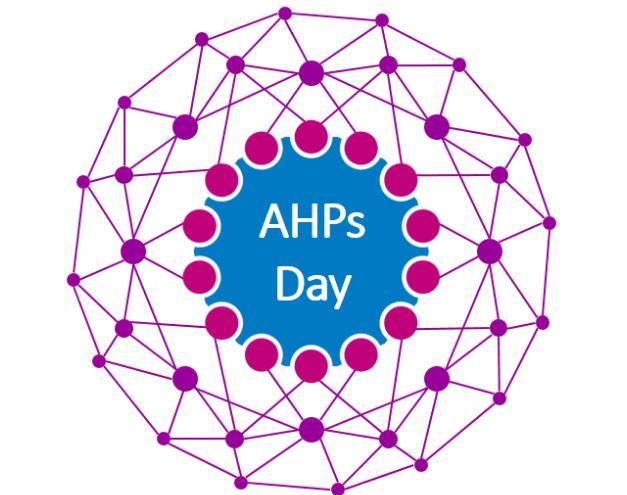
 Postgraduate researchers and supervisors, hopefully you have seen your monthly update for researcher development e-newsletter sent earlier this week. If you have missed it, please check your junk email or you can
Postgraduate researchers and supervisors, hopefully you have seen your monthly update for researcher development e-newsletter sent earlier this week. If you have missed it, please check your junk email or you can 
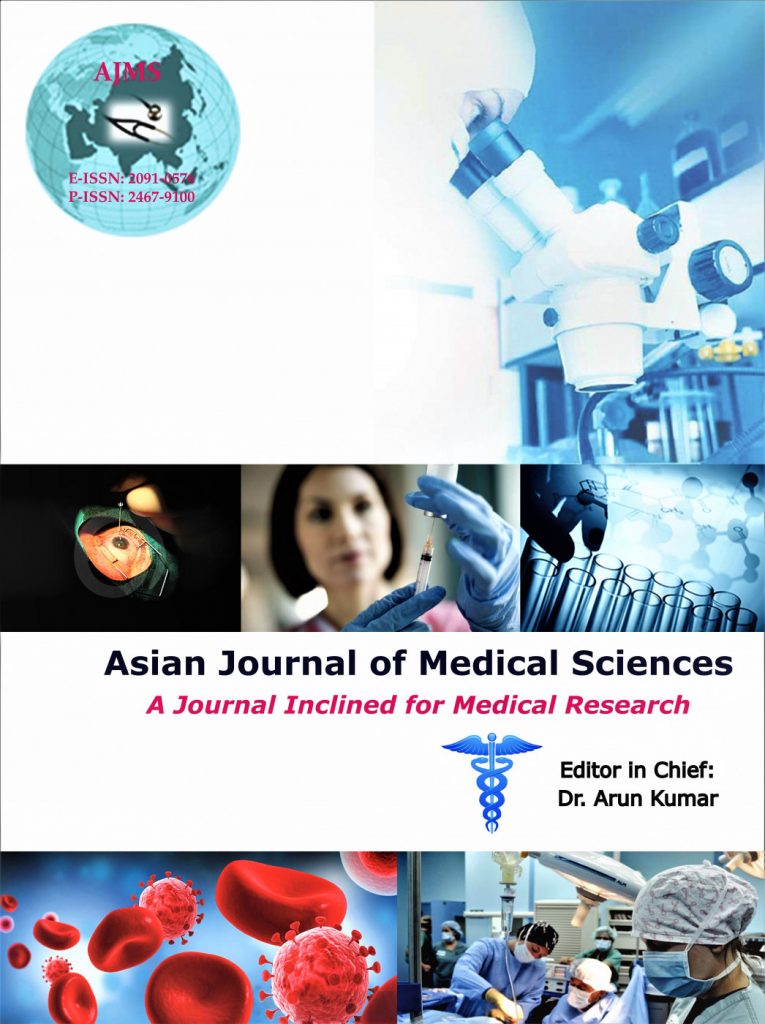



 Becoming an external peer reviewer of research funding applications not only provides an excellent way to contribute to academic citizenship, but it is also an excellent way to expose yourself to high quality research, form networks with peers outside of BU, and have access to the latest research taking place.
Becoming an external peer reviewer of research funding applications not only provides an excellent way to contribute to academic citizenship, but it is also an excellent way to expose yourself to high quality research, form networks with peers outside of BU, and have access to the latest research taking place. We have been waiting for news from Research England about the recurrent RKE grants for this year, confirmation of which has been delayed whilst UKRI waited for BEIS to confirm their budget. There was some initial news yesterday, which is summarised below. Institutional allocations will be published next month but overall there’s an increase in funding available, so hopefully we’ll secure more funding than last year 🤞
We have been waiting for news from Research England about the recurrent RKE grants for this year, confirmation of which has been delayed whilst UKRI waited for BEIS to confirm their budget. There was some initial news yesterday, which is summarised below. Institutional allocations will be published next month but overall there’s an increase in funding available, so hopefully we’ll secure more funding than last year 🤞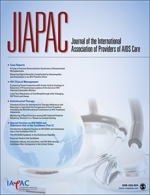

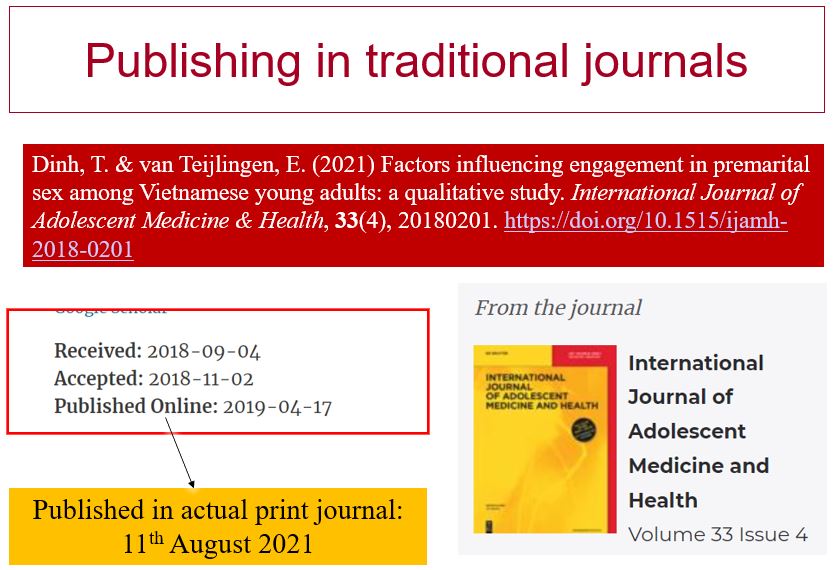

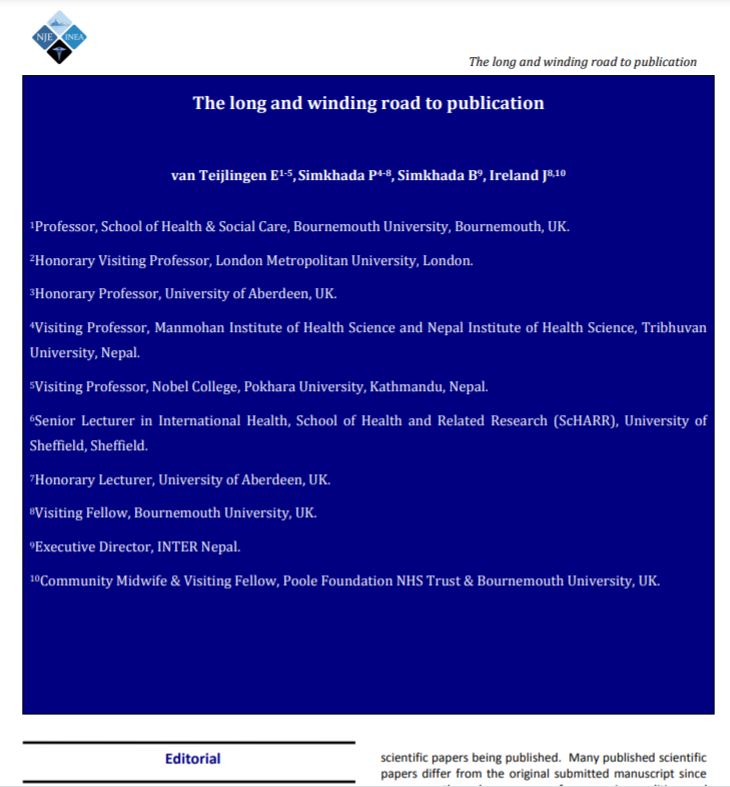












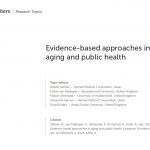 New eBook published in April
New eBook published in April Café Scientifique Tuesday 4 June 2024 – How can we become more resilient in the face of multiple risks and hazards?
Café Scientifique Tuesday 4 June 2024 – How can we become more resilient in the face of multiple risks and hazards? MSCA Postdoctoral Fellowships 2024
MSCA Postdoctoral Fellowships 2024 Horizon Europe News – December 2023
Horizon Europe News – December 2023